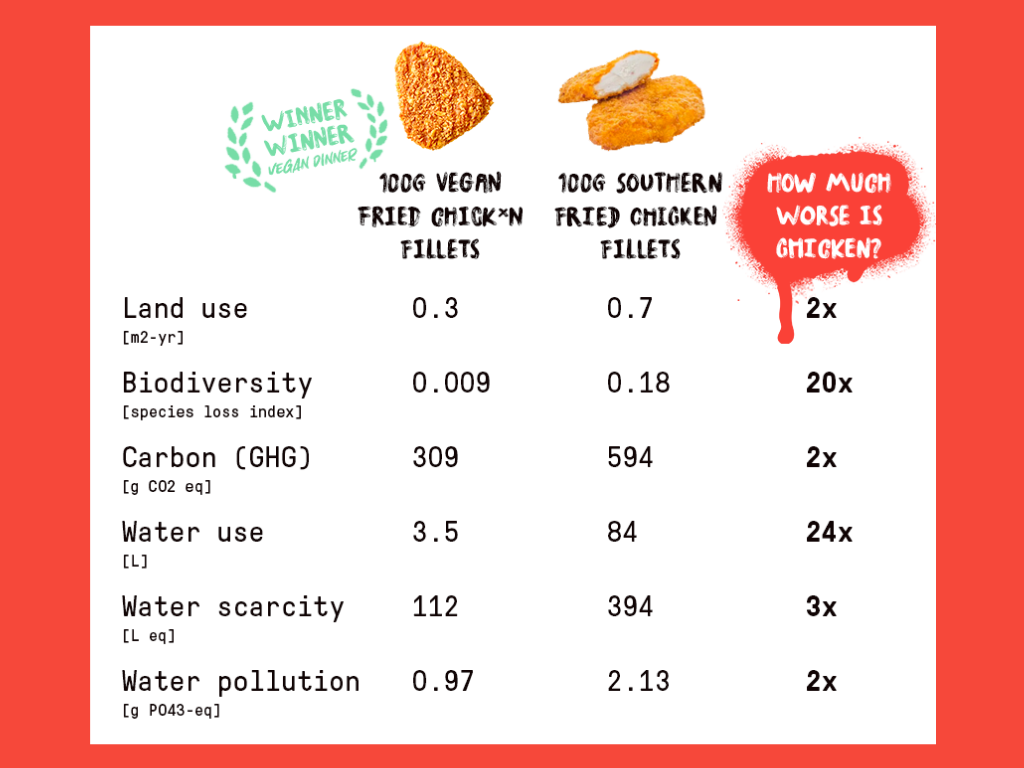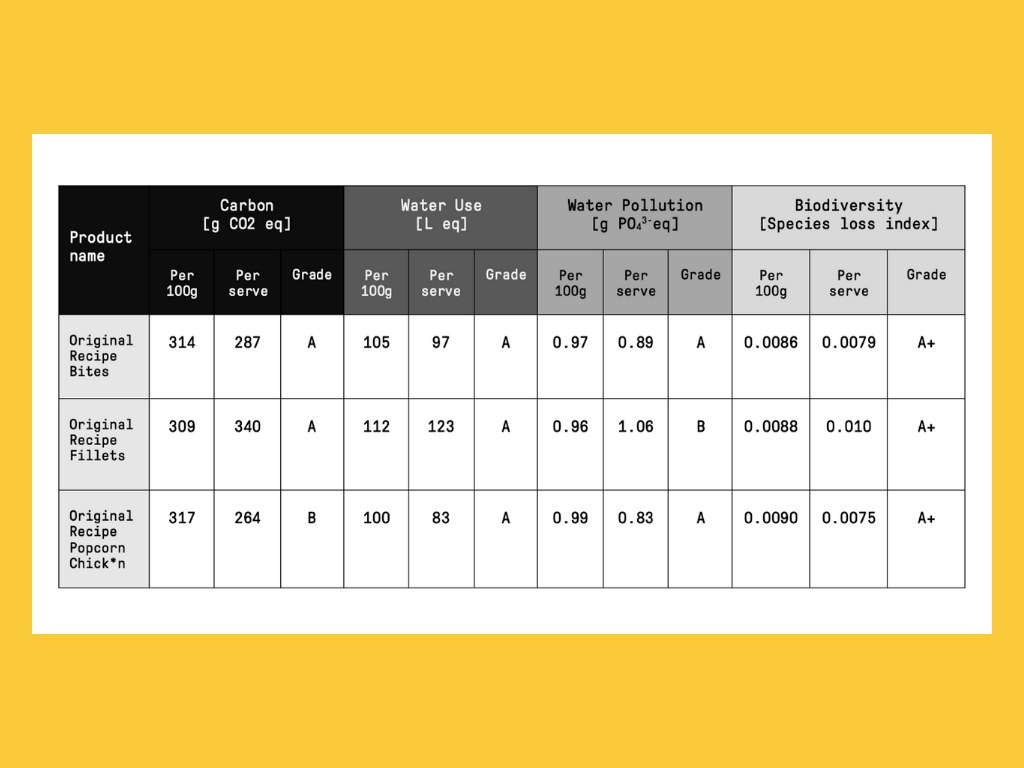Vegan Chicken Brand Earns an ‘A’ Eco Impact Grade, Calls On Meat Industry To Share Its Results
3 Mins Read
Vegan fried chick*n brand VFC has announced its eco impact figures and issued a challenge to the meat industry to “come clean and then clean up”. Following its grading by Foundation Earth, the startup was independently found to outperform meat equivalent companies across all environmental markers. All three products in the range were granted an ‘A’ rating.
Data was collated and analysed by Mondra. VFC was compared to animal meat-based southern fried chicken fillets manufactured in the U.K. for supply to domestic supermarkets. The key takeaway from the analysis was that gram for gram, animal products generated twice the environmental impact as VFC lines.

Breaking down the figures
Mondra revealed that animal products use 24 times the amount of water and impact 20 times more on biodiversity than VFC. It went on to conclude that swapping out conventional for VFC chicken for one meal a week, for a year, would positively impact the environment. Further, if all meat-eaters in the U.K. rose to the one-meal-per-week challenge, 99.8 million showers-worth of water would be saved within a year. 9.3 tonnes of methane wouldn’t be created by farming chickens and the carbon equivalent of driving 73.2 million miles in a car would be saved.
Most pertinently, if VFC was substituted for one meal per week, 3.8 million chickens’ lives would be saved. Compared to the 75,000 chickens that VFC claims it has prevented from entering the food system since its inception in 2020, this is a significant step up.
Transparency at the forefront
VFC co-founder Matthew Glover commissioned the environmental audit of the company himself. Keen to add Foundation Earth’s environmental score information to the front of VFC’s packaging, Glover links the move to the origins of the startup itself.
“We created VFC specifically to spare the lives of animals, but, as an ethical company, we also wanted to understand how our products impact the planet. So, to achieve an A grade across the entire range of VFC is fantastic news, and shows once again the powerful impact we can have when we choose vegan foods over animal-based foods, Glover said in a statement. “We know that the meat industry is causing significant and widespread damage to our climate, waterways, wild spaces, and wild animal populations. Their environmental commitments so far amount to little more than tinkering with the existing system, and that’s not good enough. We need these companies to be honest about their impacts, and then to expand their investment in—and their production and promotion of—meat-free foods.”

In January, VFC closed a successful $10.2 million seed funding round to support international expansion into Europe and the U.S. It’s worth noting that Foundation Earth’s grade is given for manufacturing impact. It does not account for export overseas, which will increase the overall carbon footprint of every item.
The power of environmental information
Giving consumers more information to allow for greener choices is becoming a recognised methodology. In May last year, it was revealed that Google Maps is building a new feature into its platform that will offer more eco-friendly routes. Routes that will generate fewer carbon emissions will be offered alongside the usual preference of fastest.
Over in Norway, online grocery chain Oda took the initiative to start adding carbon footprint information to shopping receipts. Since initiating the process in January 2021, the company has witnessed a decline in the amount of carbon-heavy items being bought. Red meat, in particular, has dropped off in favour of low impact plant-based substitutes.
All images by VFC.




